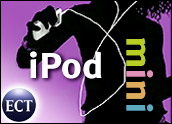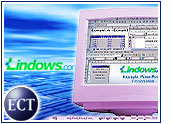
On Thursday, Apple Computer disappointed European consumers jonesing to get hold of the new iPod Mini. After originally setting an April launch date for the candy-colored portable jukebox, Apple said the iPod Mini will not become available until July.
“The iPod Mini is a huge hit with customers in the U.S., and we’re sure it will be the same worldwide once we can ramp up our supply in the July quarter,” said Tim Cook, executive vice president of worldwide sales and operations at Apple.
According to Apple, U.S. demand for the iPod Mini turned out to be much greater than anticipated, outpacing the company’s overall planned output through the end of June. A reported shortage of the tiny hard drives used in the iPod Minis also contributed to the delay.
Waiting for iTunes
Although the hard-drive shortage appears to be the primary reason for the delay, other factors also appear to have played into Apple’s announcement. The Mac Observer publisher Bryan Chaffin told the E-Commerce Times that Apple’s primary concern right now is to meet U.S. demand. “They are not leaving any room in the States for someone else to come in and steal away” market share, he said.
For his part, Mike McGuire, research director of the media team at GartnerG2, told the E-Commerce Times that Apple may not want to roll out iPod Minis too far ahead of the European launch of its iTunes Music Store (iTMS).
Apple has yet to announce a projected launch date for iTMS in the United Kingdom, although some analysts have said it could happen by summer’s end. Rival Napster already has announced an end-of-summer launch date for its own service; however, neither company has provided a timetable for a full, Europe-wide launch.
Chaffin said the delay likely will not hurt Apple’s market position. “Come July, there is still plenty of opportunity for Apple to leverage the demand for the Mini,” he said. “The regular iPod is still available in Europe, and it’s just unlikely that Apple’s lack of April entry into that market is going to bring a flood of other vendors in to steal [Apple’s] market share in this space.”
No Reason To Cut Prices
Meanwhile, the iPod Mini’s seemingly high price point has not dissuaded U.S. consumers from buying the devices as quickly as they can be stocked on store shelves. Chaffin recounted an anecdote in which an assistant manager of a San Francisco Best Buy ordered 20 iPod Minis.
“They were gone within 24 hours, most of them purchased by Windows users. He said kids were coming in with their parents and their piggy bank to get one,” Chaffin said.
For his part, McGuire noted that the iPod Mini’s price does not have to decrease for a while. “People are willing to pay a premium for a lighter-weight product with a smaller footprint, just like with cell phones and sub-notebook computers,” he said. “The iPod Mini’s feature set and functionality are tough to beat. You can’t compete just on price.”
Patenting the GUI
McGuire went on to say the iPod Mini and the original iPod are aimed at anyone seeking a portable music player with an above-average user interface. Although he believes it is inevitable that other vendors will come out with better user interfaces, he said he has yet to see one with an interface remotely as good as Apple’s.
Therefore, it should come as no surprise that Apple has applied for a patent for the iPod’s UI. The Mac Observer scooped this information in an article published Thursday.
Chaffin said that, while Apple has done a brilliant job of making the iPod “feel” right through the product’s style, size and weight, the real magic of using the device stems from its interface.
“If Apple is granted this patent, it will offer the company far greater protection from would-be knock-offs and provide the company [with] a powerful tool in maintaining its market share lead over the competition,” he said. “It’s a smart move from a company whose bad decisions in the past resulted in losing control over the Mac’s look and feel, and we all know how that worked out.”
Chaffin went on to say that Apple needs to avoid the pitfalls that allowed Microsoft to hijack the Macintosh GUI for its Windows interface.
“Apple thought it was licensing that look and feel for one version of Windows only, while Microsoft successfully argued in court that the agreement allowed Microsoft to use what it wanted in perpetuity,” Chaffin noted.















































Social Media
See all Social Media